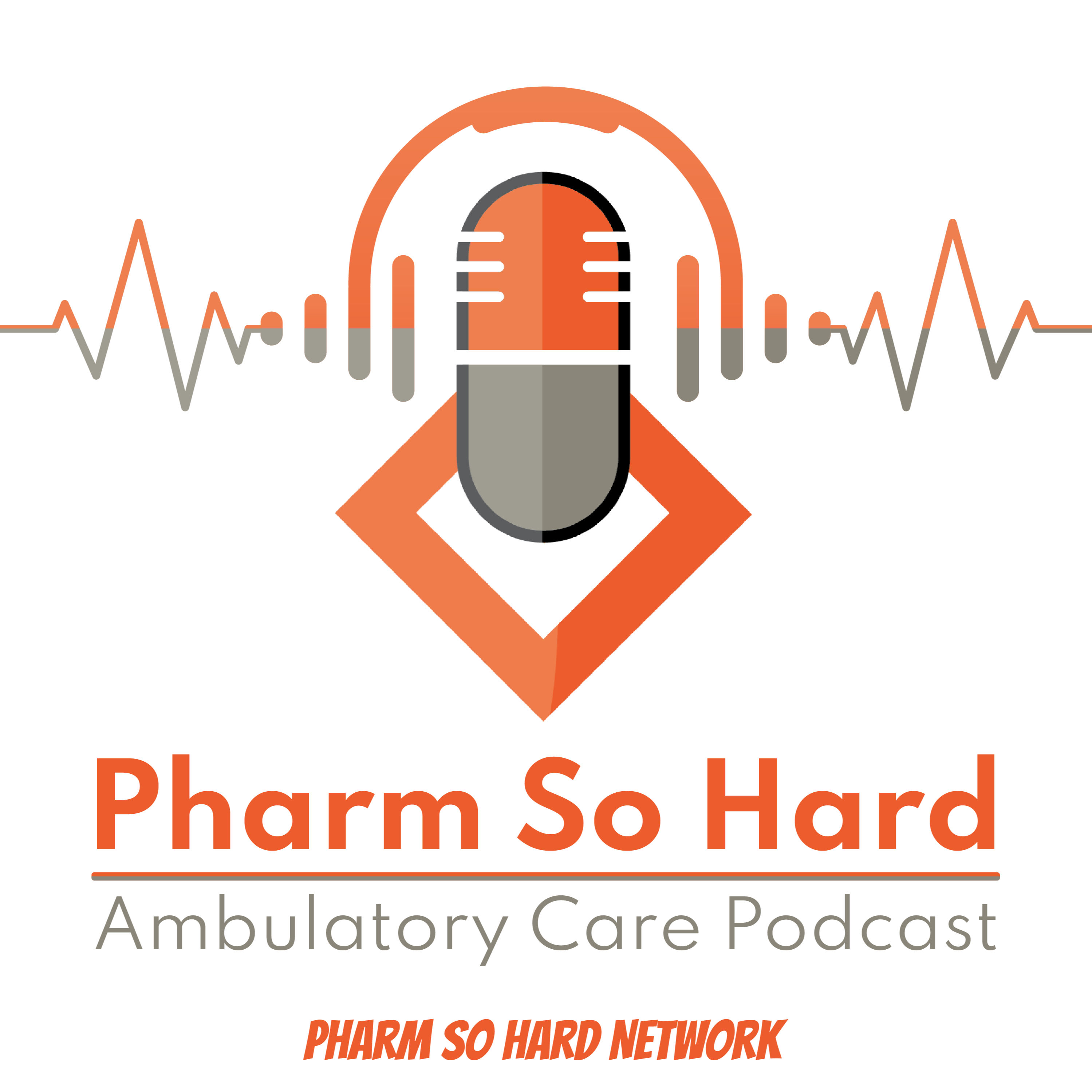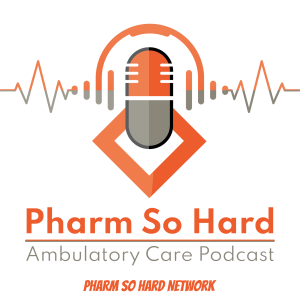
829
Downloads
10
Episodes
Welcome to the “Pharm So Hard Ambulatory Care Podcast,” part of the “Pharm So Hard Network hosted by Micaela Hayes, PharmD and Morgan Grier, PharmD. This series is your go-to source for all things ambulatory care pharmacy. Join us as we explore medication therapy management, chronic disease management, innovative patient care models, and the latest in policy and practice updates. Featuring expert insights and real-world advice, our episodes are designed to empower pharmacy professionals to excel in outpatient care settings. Tune in to stay at the forefront of ambulatory care pharmacy practice and join a community of dedicated healthcare professionals committed to making a difference. Subscribe now and transform patient care with us.
Episodes

Tuesday Apr 16, 2024
Tuesday Apr 16, 2024
In this episode of the Pharm So Hard Podcast, the hosts discuss GLP-1 receptor agonists, a class of medications used to manage blood sugar levels in patients with type 2 diabetes and to treat obesity. They provide an overview of the history and development of GLP-1 receptor agonists, highlighting their clinical superiority and various benefits. The hosts also explain the role of GLP-1s in the body, including their glucose-dependent insulin secretion and effects on gastric emptying. They discuss the impact of GLP-1s on hunger and mental health, emphasizing the reduction of food noise and improvement in satiety levels. Additionally, they differentiate GLP-1 receptor agonists for diabetes and weight loss and explore their indications and guideline positioning.
Takeaways
-
GLP-1 receptor agonists are a class of medications used to manage blood sugar levels in patients with type 2 diabetes and to treat obesity.
-
GLP-1 receptor agonists have shown clinical superiority to other anti-hyperglycemic drugs, improving glycemic control, reducing weight loss and blood pressure, and providing cardio-protective benefits.
-
GLP-1s increase glucose-dependent insulin secretion, block glucagon secretion, and slow gastric emptying, leading to improved blood sugar control and increased satiety.
-
GLP-1 receptor agonists have a positive impact on mental health, reducing food noise and helping individuals make healthier food choices.
-
Different GLP-1 receptor agonists have specific indications for diabetes and weight loss, and their use is guided by clinical guidelines.
-
GLP-1 receptor agonists are FDA-approved for improving glycemic control in patients with type 2 diabetes and for the treatment of obesity.
-
The choice of GLP-1 receptor agonist depends on factors such as comorbidities, weight loss goals, and patient preferences.
-
GLP-1 receptor agonists have different dosing regimens, and the specific dose may vary based on the indication and the product.
-
Common side effects of GLP-1 receptor agonists include nausea, vomiting, and diarrhea, but these side effects often improve with continued use and proper management. GLP-1 agonists can cause loss of appetite as a side effect.
-
GLP-1s are being used off-label for conditions such as NAFLD and depression.
-
GLP-1s may have positive effects on bone health and blood pressure.
-
The high cost of GLP-1s poses challenges for patient access.
